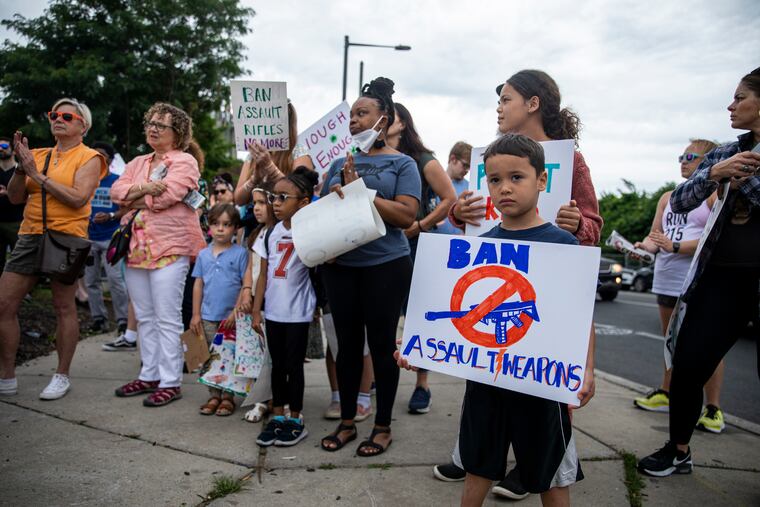Local legislators see bipartisan gun deal as important first step
The framework, negotiated by 10 Republicans and 10 Democrats in the Senate, would increase investments in mental health services and require background checks for buyers under 21, among other things.

Legislators in the Philadelphia region were tentatively optimistic about a bipartisan Senate agreement on gun safety announced on Sunday, saying it was a step in the right direction.
The framework, negotiated by 10 Republicans and 10 Democrats in the Senate, would increase investments in mental health services, require background checks for buyers under age 21, and further limit gun ownership among convicted domestic abusers.
Sen. Pat Toomey (R., Pa.), long at the center of the conversation over gun safety in Congress, helped to negotiate the agreement. This deal falls short of the expanded background checks included in the bill Toomey sponsored after the Sandy Hook Elementary School shooting in 2012. Still, the group of senators said they were hopeful that the bill could earn broad, bipartisan support.
“Families are scared, and it is our duty to come together and get something done that will help restore their sense of safety and security,” the senators said in a joint statement. “Most importantly, our plan saves lives while also protecting the constitutional rights of law-abiding Americans.”
Sen. Chris Coons (D., Del.) also helped to negotiate the deal, and said in a statement that although “this framework does not have everything my Democratic colleagues and I would like to see in a gun violence prevention package,” the agreement was a “meaningful step forward.”
» READ MORE: Philly 'March for Our Lives' rallies for new gun measures and 'to put the guns down'
Sen. Bob Casey (D., Pa.), who changed his position on gun safety laws after Sandy Hook, tweeted on Sunday afternoon that he was “encouraged by the emerging bipartisan deal on gun legislation. While we need to do more to close loopholes and keep weapons of war off our streets, this deal is an important first step.” A spokeswoman for the senator said Casey did not yet know more specifics beyond the broad outline.
U.S. Rep. Dwight Evans of Philadelphia said in an interview that although he wanted to see a ban on assault weapons, he viewed the framework as a “step forward for the children” as well as an incentive for state and local governments to pass tighter gun legislation.
“I’m not going to be one to try to pick it apart,” Evans said of the agreement. “We need everybody working together.”
U.S. Rep. Susan Wild of Allentown, who has made mental health issues a focus of her time in office, said the Senate framework was “a start, but it isn’t enough.” In a statement, she said people under the age of 21 should not be able to buy long guns.
“I am happy to see community mental health centers funded and would strongly encourage that provision,” Wild said in a statement, “although I don’t think that should be considered a deterrence to gun violence, but rather, an investment in solving the mental health crisis we have in this country generally.”